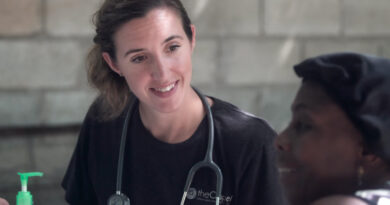What’s Next After A Nursing Degree? Our Guide
So, you’re coming to the end of your nursing degree. First of all, congratulations. We don’t need to tell you that a nursing degree is one of the most challenging and physically taxing courses available, but now that it’s coming to an end, you may be asking yourself what you want the next chapter in your journey to be.

There are many options available, and you will certainly never be short of work options with that diploma in your pocket, so it’s important to think about which area of healthcare you are truly passionate about, and where you can make the most difference. From a Master’s in gerontology to help make a difference in the lives of the elderly to a specialization in orthopedics, the next step in your training will set you on the path to the perfect field for you. Here are three of the most popular choices.
Midwifery
Midwifery is not just about being there to help with the birth. A midwife is there every step of the way, because it’s about the mother as much as it is about the baby. It’s a role that requires the kind of personality to step up and take charge, to convey confidence and assertiveness, and to communicate difficult information during one of the most emotional moments of someone’s life. It’s an extremely challenging role, especially during a pandemic, that will put you in the room for tragedy as well as joy, but it’s one of the most rewarding career paths there are. Most courses will want you to have some experience of working with pregnant mothers before you start.
Mental Health Nurse Practitioner
The fact is that there is a real shortage of qualified mental health care professionals working in the United States, with 77% of US counties reporting a detrimental shortage. This shortage is having a devastating impact on the vulnerable people who need this care, but the good news is that more and more people in the medical profession are deciding to pursue a specialty in mental health. As a psych np, you will be qualified in assessment and diagnosis, be able to prescribe medication and a treatment plan, and you’ll be able to lead psychotherapy sessions but also help to educate the patient’s friends and families about the unique difficulties their loved ones are facing.
Nurse Anesthetist
If you are blessed with incredible focus and the ability to remain calm under pressure (although, of course, you would not have completed a degree in Nursing without these two gifts), a Masters in Nurse Anesthesia could be the perfect fit for you. Working in a range of healthcare settings from operating rooms to ER trauma departments to pain clinics, a nurse anesthetist is there before, during and after procedures. You’ll be monitoring patients and staying with them during their procedures, and offering post-op support to discuss ongoing pain and medication options. If you’re interested in pursuing this area, you could think about applying for a critical care registered nurse certification to gain the experience you need, and the high stakes of the role are well compensated.



